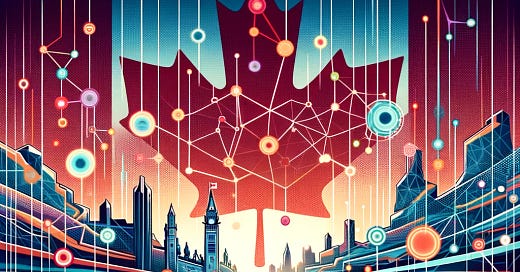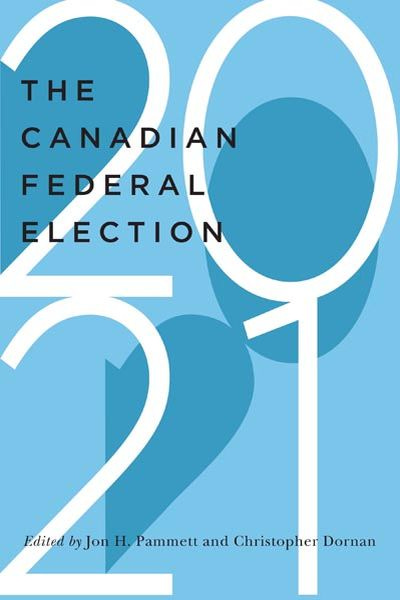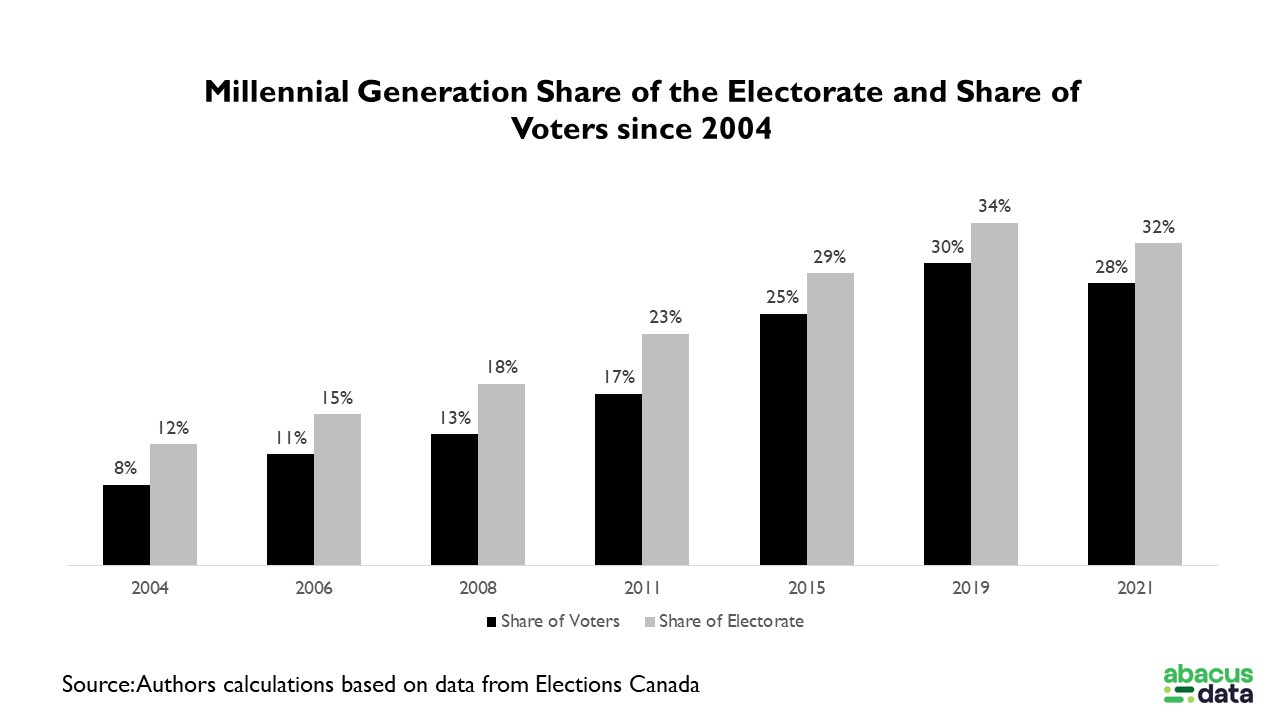The Millennial Makeover of Canadian Politics
Why did Canada's largest generation go from crowning to abandoning Justin Trudeau and the Liberal Party of Canada?
Sign up for my virtual briefing on March 6 at 12pm ET to get access to new polling data and insights. Find out more here.
I’ve spent much of my career exploring the views and behaviours of my generation (the millennials) and their political impact has always fascinated me. I reflected on being a midlife millennial a few years.
Soon after the 2021 Canadian election, I wrote a book chapter on how millennials responded to politics and voted in that election.
In that work, I defined millennials as anyone born between 1980 and 2000.
Here are the key points from that chapter:
Stereotypes Challenged: Despite being labeled as "lazy, entitled narcissists" by popular media, millennials have proven to be a significant political and consumer force, challenging stereotypes with their substantial impact on elections and market trends.
Political Influence Grows: Millennials' political influence has increased over time, with their support playing a crucial role in the outcomes of key elections in the United States and Canada, demonstrating their evolving role from a demographic segment to a potent political force.
2015 and 2019 Canadian Elections: Their support was pivotal for the Liberal Party's success in the 2015 and 2019 Canadian federal elections, indicating a shift in political power dynamics from Baby Boomers to millennials.
Millennial Voter Characteristics: Defined as those born between 1980 and 2000, millennials are digitally native, diverse, highly educated, and have unique shared experiences, such as the 2008/2009 recession and the 9/11 attacks, shaping their outlook and priorities.
Increased Electoral Participation: Despite historically lower voter turnout rates compared to older generations, millennials have shown increased electoral participation over the years, with a notable surge in the 2015 Canadian election that contributed to the Liberal Party's victory.
Impact on 2021 Canadian Election: The 2021 election highlighted millennials' critical role in the Liberal Party's re-election. Their preferences and turnout, especially in urban areas, were key factors in the electoral outcome.
Policy and Platform Appeals: Political parties have recognized the importance of millennial voters, tailoring their platforms to address issues such as housing affordability, climate change, and economic policies, aiming to resonate with millennial values and concerns.
Shift to Issue-Based Voting: The 2021 Canadian election marked a transition for millennials from being influenced primarily by a leader's image to becoming more issue-focused voters. This shift underscores millennials' growing sophistication and influence in shaping political landscapes based on policy rather than personality.
Given how important millennials have been to the outcome of the last three federal elections (here’s some research I did after the 2015 election), I was curious to isolate the generation and see how they are feeling today.
First, it’s worth reminding everyone how large a force millennials (born between 1980 and 2000) are. According to my calculations using Elections Canada data, millennials made up 1 in 3 eligible voters and 28% of those who voted in the 2021 election.
Looking at our most recent survey conducted February 1 to 8, 2024 with over 2,300 Canadian adults, here’s the current state of play with Canadian millennials:






